Proceedings of the 11th World Congress
on Electrical Engineering and Computer Systems and Science (EECSS 2025)
August 19 - 21, 2025 | Paris, France
The Plenary & keynote information for the 11th World Congress on Electrical Engineering and Computer Systems and Science (EECSS 2025) is as follows:
Plenary Speakers
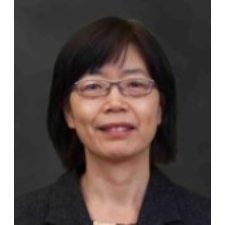
Dr. Yang Dai
Technical University of Munich, Germany
ICBES 2025 Plenary Speakers
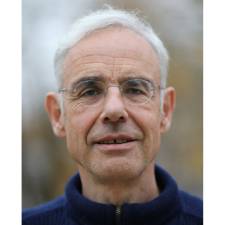
Dr. Tobias Nipkow
University of Illinois Chicago, USA
CIST 2025 Plenary Speaker

Dr. Carolyn Penstein Rose
Carnegie Mellon University, USA
CIST 2025 Plenary Speaker
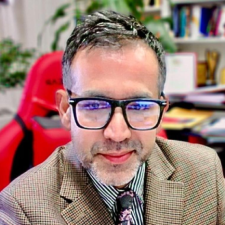
Dr. KC Santosh
University of South Dakota, USA
MVML 2025 Plenary Speaker
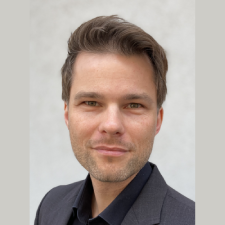
Dr. Martin Storath
Technical University of Applied Sciences Würzburg-Schweinfurt, Germany
MVML 2025 Plenary Speaker
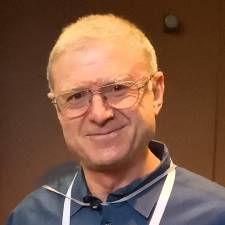
Dr. Ouri Wolfson
University of Illinois at Chicago, USA
CIST 2025 Plenary Speaker
Keynote Speakers
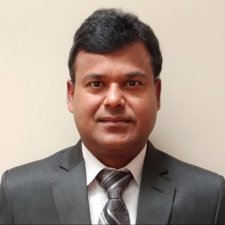
Dr. Matiar Howlader
McMaster University, Canada
EEE 2025 Keynote Speaker
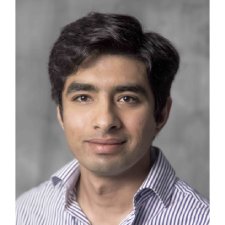
Dr. Kunal Mankodiya
University of Rhode Island, USA
ICBES 2025 Keynote Speaker
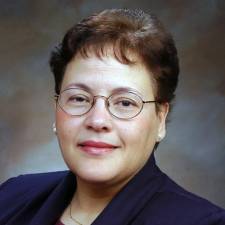
Dr. Dalila B. Megherbi
University of Manchester, UK
MHCI 2025 Keynote Speaker
ICBES 2025 Plenary Speaker

Dr. Yang Dai
University of Illinois Chicago, USA
ICBES 2025 Plenary Speaker
Bio Dr. Yang Dai (PhD) is a Professor of Biomedical Engineering at University of Illinois Chicago. Trained in optimization theory and algorithms, Dr. Dai recognized the transformative potential of mathematical modeling in biology. Her research has centered on developing novel statistical and machine learning (ML) models to decode complex molecular mechanisms from multi-omics data in living organisms and identify molecular signatures associated with disease. These efforts have led to significant scientific contributions across disciplines and collaborations with biomedical scientists and clinicians. Dr. Dai has published over 160 peer-reviewed papers and books (6,300+ citations, h-index of 41).
Topic of Plenary:
From Data to Discovery: Navigating the Latent Space of Single-Cell Multiomes
CIST 2025 Plenary Speaker

Dr. Tobias Nipkow
Technical University of Munich, Germany
CIST 2025 Plenary Speaker
Prof. Nipkow (*1958) works in the area of logic in computer science. He focuses on interactive and automatic theorem proving, programming language sematics, type systems and functional programming. His chair is developing the interactive proof assistant Isabelle. Prof. Nipkow received his Diplom (MSc) in Informatik from the Technische Hochschule Darmstadt in 1982 and his PhD from the University of Manchester in 1987. Having held research positions at MIT (1987-1989) and Cambridge University (1989-1992), he was appointed Professor for the Theory of Programming at TUM in 1992. Since 2011 he has held the chair of Logic and Verification at TUM.
Topic of Plenary:
N/A
CIST 2025 Plenary Speaker

Dr. Carolyn Penstein Rose
Carnegie Mellon University, USA
CIST 2025 Plenary Speaker
Dr. Carolyn Rosé is the Kavčić-Moura Professor of Language Technologies and Human-Computer Interaction in the School of Computer Science at Carnegie Mellon, and Program Director for the Masters of Computational Data Science Program. Her research program explores interactive and explainable Sociotechnical Artificial Intelligence from a highly interdisciplinary perspective. Her 3+ decades long career has aimed to develop technology to positively impact human learning. Her team’s research, published in over 330 peer reviewed publications, pushes the frontier of learnability and generalizabiliry through deeply data focused explorations of inductive biases. Her work develops and explores novel representations and architectural elements using a problem-driven approach motivated by error analysis and exploratory data analysis, with a current emphasis on abstraction and decomposition, which are arguably two of the greatest challenges for LLMs. She investigates these issues across multiple problem areas including multimodal conversational process analysis, multimodal document understanding, clinical text processing, knowledge based question answering, and language models of code. She is a Past President and Inaugural Fellow of the International Society of the Learning Sciences, Senior member of IEEE, Founding Chair of the International Alliance to Advance Learning in the Digital Era, and Executive Editor (formerly Co-Editor-in-Chief) of the International Journal of Computer-Supported Collaborative Learning. She also serves as a 2020-2021 AAAS Leshner Leadership Institute Fellow for Public Engagement with Science, with a focus on public engagement with Artificial Intelligence. This year she is serving as Program Co-Chair for Empirical Methods in Natural Language Processing.
Topic of keynote:
Sociotechnical Artificial Intelligence: Exploring Human-AI Complementarity in Multi-Agent Team Environments
MVML 2025 plenary Speaker

Dr. KC Santosh
University of South Dakota, USA
MVML 2025 Plenary Speaker
Prof. KC Santosh is the Chair of the Department of Computer Science (since 2020) and founding director of the AI Lab (since 2015) at the University of South Dakota (USD). He served as Graduate Program Director for seven years (2017–24) and was previously a research fellow at NIH and a PostDoc at INRIA (France). At USD, he has overseen five degree-granting programs, including six specializations and certificates, managed 15 faculty and three staff, supported ~500 students, and administered a budget of over $2.2 million, including research grants. With over $8.7 million in funding (DOD, NSF, and ED, to name a few), he has authored 10 books and 250+ research articles (such as IEEE TPAMI, IEEE TAI, and IEEE TMI). He serves as an associate editor for IEEE Trans on AI, IEEE Trans of Medical Imaging and Int J of Machine Learning & Cybernetics and leads review panels for NSF and Mitacs (Canada). He is a trained leader, having completed leadership programs such as Deans/Chairs 1.0 (CCAS, Spring 2021), Deans/Chairs 2.0 (CCAS, Summer 2024), and the President Executive Leadership Training (USD, 2021/22). He leads AI+x initiative that primarily includes curriculum innovation, South Dakota Biomedical Computation Collaborative (supported by a $6.5M award from the U.S. Department of Education) and USD’s AI symposium (IEEE). He brings extensive experience in curriculum innovation—particularly in interdisciplinary initiatives and shared governance (e.g., physics, business analytics, psychology, biology, and biomedical engineering, etc.)—as well as in program assessment and evaluation (as PEV), including ABET accreditation during the 2016/17 and 2022/23 cycles. His leadership has driven a 4,000% growth in AI enrollment at USD. His contributions have established USD as a pioneer in AI programs within the state of South Dakota. In fundraising, he secured a $2.0 million endowment to further strengthen the reputation of the department. He is a member of the NIST’s AI Safety Institute Consortium and a U.S. Speaker for AI education
Topic of Keynote:
Human AI - How Big Data is Big Enough?
MVML 2025 Plenary Speaker

Dr. Martin Storath
Technical University of Applied Sciences Würzburg-Schweinfurt, Germany
MVML 2025 Plenary Speaker
Martin Storath received the Diplom degree in mathematics, the Honours degree in technology management, and the Ph.D. degree in mathematics from Technische Universität München in 2008, 2009, and 2013, respectively. He has contributed as a researcher at institutions such as the Helmholtz Zentrum München, the Biomedical Imaging Group at EPFL, and the Image Analysis and Learning Group at Universität Heidelberg. Currently, he serves as a Professor at the Technical University of Applied Sciences Würzburg-Schweinfurt. His research focuses on computer vision, machine learning, and the development of fast algorithms.
Topic of Plenary:
Fast Algorithms for Model-Based Smoothing Of Discontinuous Signals and Images
CIST 2025 Plenary Speaker

Dr. Ouri Wolfson
University of Illinois Chicago, USA
CIST 2025 Plenary Speaker
Ouri Wolfson received his B.A. degree in mathematics, and his Ph.D. degree in computer science from Courant Institute of Mathematical Sciences, New York University. Currently he is a Professor of Computer Science at the University of Illinois at Chicago and the founder and Chief Scientific Officer of Pirouette Software Inc., a smart city company. Previously he has been on the computer science faculty at the Technion, Columbia University, and a Member of Technical Staff at Bell Laboratories. He was also the founder of Mobitrac, a high-tech venture-funded startup that was acquired in 2006. He served as a consultant to Argonne National Laboratory, US Army Research Laboratories, DARPA, and NASA. Ouri Wolfson authored over 240 publications, eight of them award winning. He holds seven patents, and has over 17,000 citations on Google scholar. He is a Fellow of the Association of Computing Machinery (ACM), a Fellow of the American Association for the Advancement of Science (AAAS), a Fellow of the Institute of Electrical and Electronics Engineers (IEEE), a Fellow of the Asia-Pacific Artificial Intelligence Association (AAIA), Fellow of the International Artificial Intelligence Industry Alliance (AIIA), and a University of Illinois Scholar. He served as a Distinguished Lecturer for the ACM. His research has been funded by the NSF, Air Force Office of Scientific Research, DARPA, NATO,US Army, NASA, Hughes Research Labs, Accenture, Hitachi Co.
Topic of Keynote:
Artificial General Intelligence through Machine
ICBES 2025 Keynote Speaker

Dr. Thurmon Lockhart
Arizona State University, USA
ICBES 2025 Keynote Speaker
Thurmon Lockhart, PhD, More Foundation Professor of Life in Motion, School of Biological and Health Systems Engineering, Arizona State University, Tempe, AZ USA Dr. Thurmon Lockhart is the Inaugural MORE Foundation Professor of Life in Motion Professor in the Biomedical Engineering program in the School of Biological Health and Systems Engineering at Arizona State University. Professor Lockhart’s research focuses on the identification of injury mechanisms and quantification of sensorimotor deficits and movement disorders associated with aging and neurological disorders on fall accidents utilizing wearable biosensors and nonlinear dynamics and machine learning. For the presentation, I will discuss about a recent publication and following work regarding prediction of fall risk in older adults using nonlinear dynamics and machine learning.
Topic of Keynote:
The Use of Artificial Intelligence in Fall Prevention for the Elderly
EEE 2025 Keynote Speaker

Dr. Matiar Howlader
McMaster University, Canada
EEE 2025 Keynote Speaker
Matiar R. Howlader started his academic career with a BSc in Electrical and Electronic Engineering from Bangladesh in 1988 and later earned his Ph.D. in Applied Quantum Physics and Nuclear Engineering from Japan by 1999. A recipient of the Best Technical Paper Award in 2003, Howlader was an Endowed Associate Professor in Tokyo before joining McMaster University, Canada. Currently, he serves as an Associate Professor in Electrical and Computer Engineering at McMaster University, Canada. Specializing in nanomaterials-based electrochemical sensors, his work revolves around developing innovative materials and components for health, environmental, and energy applications. A key innovation is surface-activated nanobonding (SAB) which integrates different materials. Howlader’s vision encompasses the use of artificial neural networks for disease biomarker analysis and the creation of personalized healthcare biosensor systems, merging technology, health, and environment for comprehensive sensing solutions.
Topic of Keynote:
Electrodeposited polymers in electrochemical sensors for health applications
ICBES 2025 Keynote Speaker

Dr. Kunal Mankodiya
University of Rhode Island, USA
ICBES 2025 Keynote Speaker
Kunal Mankodiya, PhD is the Director of Wearable Biosensing Lab and is an associate professor in the Dept. of Electrical, Computer, and Biomedical Engineering, University of Rhode Island, RI, USA since 2014. He is a recipient of NSF CAREER (2016) Award enabling research on “Internet of e-textile wearables for telemedicine”. In 2018, he received TechConnect Defense Innovation Award for his work on “Smart Textile Trouser”. He was recognized as the “Innovator-of-the-year” by Future Textiles Awards, Frankfurt, Germany in 2017. Mankodiya was also selected among “40 under 40” by Providence Business News in 2017. His embedded computing design of a smart-textile ECG system earned him the 2010 SYSTEX Award, University of Ghent, Belgium. He regularly organizes scientific workshops/symposiums on IOT for healthcare at various international conferences. He also organizes an annual 48-hour HealthHacks event to promote entrepreneurial thinking in the areas including IOT, healthcare, and aging. His course on Wearable IOT blends design thinking with IOT concepts to nurture entrepreneurial skills in students from various backgrounds. He pursued his postdoctoral research at Intel Science & Technology Center (ISTC) and Carnegie Mellon University (CMU), Pittsburgh, PA, USA. He received his Ph.D. degree from the University of Luebeck, Germany. He holds MS (University of Luebeck, Germany) and BE (Saurashtra University, India) degrees in Biomedical Engineering.
Topic of Keynote:
From Generic to Specific: Tailoring Wearable Technologies for Personalized Healthcare
MHCI 2025 Keynote Speaker

Dr. Dalila B. Megherbi
University of Massachusetts Lowell, USA
MHCI 2025 Keynote Speaker
Dr. Dalila B. Megherbi received the Sc.M in Electrical and Computer Engineering, the Sc.M in Applied Mathematics, and the Ph.D in Electrical and Computer Engineering from Brown University, Providence, RI, USA. Dr. Megherbi is a professor of electrical and computer engineering at the University of Massachusetts, Lowell. She is the founder and Director of the Research Center for Computer Machine/Human Intelligence Networking and Distributed Systems (CMINDS) (https://www.uml.edu/Research/CMINDS/). Her research is internationally recognized. She holds more than 158 refereed peer-reviewed publications, including articles in the IEEE and the prestigious Nature Biotechnology. She holds US patent. She has been the recipient of numerous research grants and contracts, as the primary lead principal investigator, from several federal agencies and the industry, including DOD AFRL/WPAB, NSF, US FDA, NIH, Raytheon Air Missile Defense Systems, Xilinx Inc., Structural Dynamics Research Corporation, SUN Microsystems/Oracle, Altera Inc., and Sky Computers Inc. She graduated more than 46 UML graduate Ph.D. and MS thesis option students. She serves as an associate editor and member of the editorial boards, as well as a reviewer for a dozen journals, including IEEE Transactions. She was invited to serve as a General Chair for the 2018 IEEE CIVEMSA International Conference. She has been invited to organize, serve as a session chair, and deliver a keynote address at several national and international conferences. She has been invited to serve on national and international peer review boards, including the NSF, NIH, NASA, the National Science Foundation of Ireland, and the Czech Science Foundation. She has been the recipient of numerous research and teaching awards, including the recipient of the Best Paper Award of all-conference tracks at the IEEE International Conference on Homeland Security, the recipient of the IEEE Control Systems Society CDC Best Paper Finalist Award, the recipient of the Best Paper Award at the IEEE international conference ROMA, the recipient of the Best Paper Award at the IEEE international conference CIVEMSA, the recipient of the Top Professor Award for Outstanding Academic Integrity Leadership and Service to the students, the recipient of several university of Massachusetts Lowell Outstanding Teaching Excellence Awards, the recipient of several UML Annual Research and Scholarship Recognition Awards, in recognition of faculty with an extensive scholarship during that year. She has been a member of an international project consortium led by the US FDA. She was invited, interviewed, and quoted in the New Times for her expertise in big data facial recognition for homeland security applications. Major national and international news agencies contacted her for her work and expertise in big data and facial recognition for homeland security. She was invited, interviewed, and featured by the Science News Radio Network for her expertise in Artificial Intelligence and Big Data technologies applied to Weapons of Mass Destruction. She is an invited member of several honorary Societies, including Sigma Xi, Brown Chapter, New York Academy of Science, and the American Society for the Advancement of Science. Her primary research interests are in AI and Computational Machine Intelligence, Machine and Deep Learning, Digital Image processing & Computer Vision, “Big data” analytics, knowledge extraction and representation, and adaptive learning systems in distributed computing systems and networks, with applications to homeland security and the life sciences (high throughput meta-genomics). Her main research goal is understanding and building sensor-based machines that can be made to exhibit intelligence. The idea is to build intelligent machines/sensors and to understand certain aspects of human and animal biological intelligence.
Topic of Keynote:
Improving Medical Imaging Efficiency with AI Algorithms Running on Dedicated AI Chips